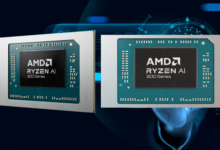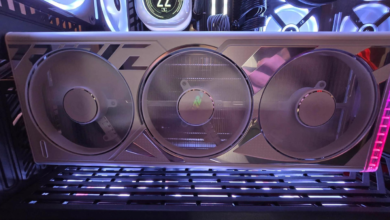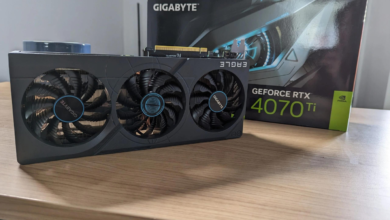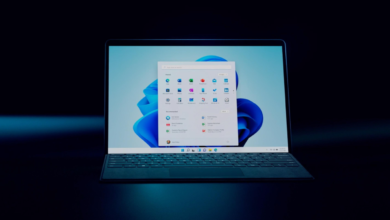AMD Ryzen processors are high-performance microprocessors developed by Advanced Micro Devices (AMD) for desktops, laptops, and embedded platforms. These processors, introduced in 2017, have significantly reshaped the CPU market by offering competitive alternatives to Intel’s CPUs. Ryzen processors are based on the innovative Zen architecture, which has undergone several iterations, each enhancing performance, efficiency, and features. These advancements have made Ryzen processors popular among gamers, content creators, and professionals.
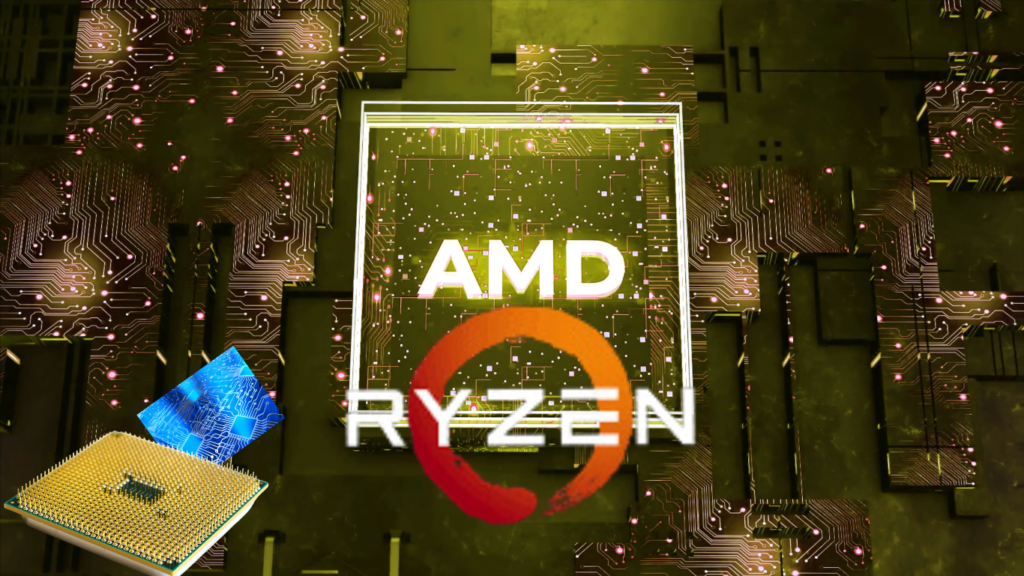
Table of Contents
How Did AMD Ryzen Processors Revolutionize the CPU Market?
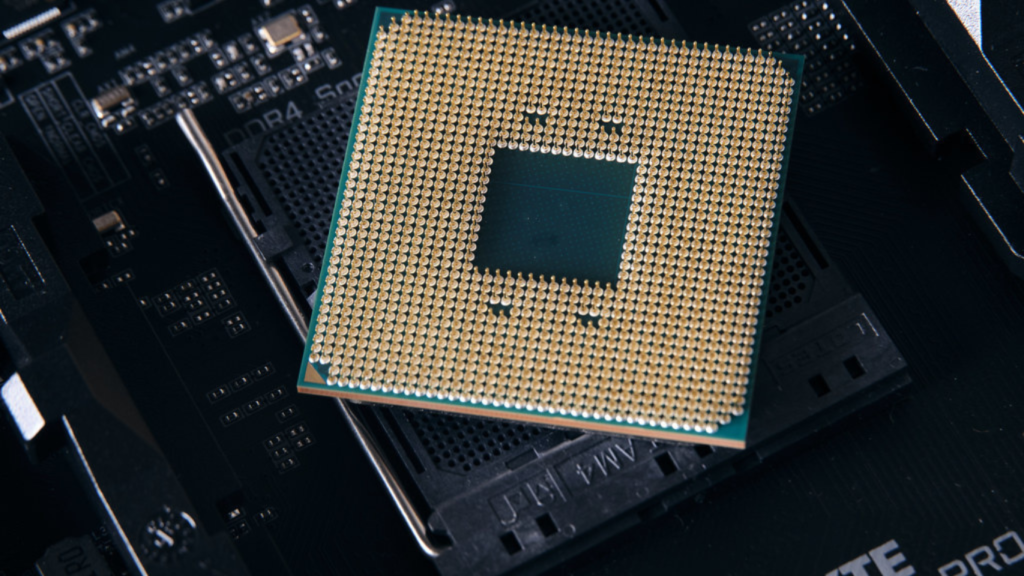
Before the introduction of Ryzen, AMD was grappling with Intel’s dominance in the CPU market. However, the launch of the first-generation Ryzen processors was a game-changer. These processors, built on the Zen architecture, not only offered substantial performance improvements but also competitive pricing, which disrupted the market.
Ryzen processors provided consumers with high-performance options that often outperformed Intel CPUs in multi-threaded tasks, gaming, and content creation while being more cost-effective. This disruption spurred a competitive drive that forced Intel to accelerate its innovations, benefiting consumers with better products and prices.
This shift in the market landscape is crucial for you, as a technology enthusiast or professional, to stay informed about the latest advancements and choices available to you.
What Are the Key Features of AMD Ryzen Processors?
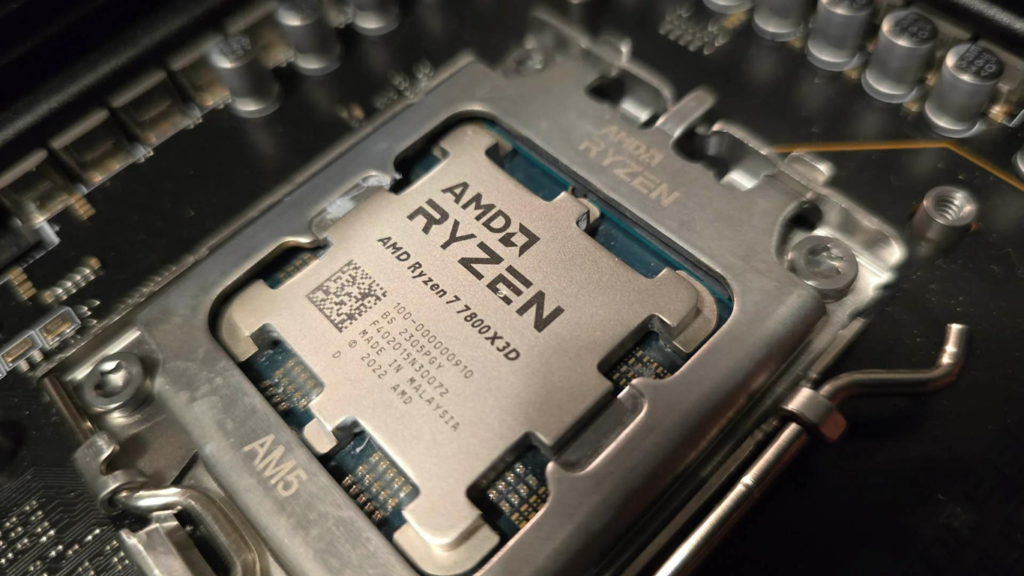
AMD Ryzen processors are known for several key features that distinguish them from competitors:
- Zen Architecture: The backbone of Ryzen processors significantly improves instructions per cycle (IPC) and energy efficiency.
- Multi-core Design: Ryzen CPUs often feature a higher core count than their Intel counterparts, making them particularly effective for multi-threaded applications.
- Precision Boost and Extended Frequency Range (XFR): These technologies allow Ryzen processors to dynamically adjust clock speeds to optimize performance under varying conditions.
- Unlocked Multipliers: Most Ryzen CPUs are unlocked, permitting enthusiasts to overclock them for additional performance.
- Simultaneous Multithreading (SMT): Enables each core to handle two threads simultaneously, enhancing performance in multi-threaded workloads.
How Does the Zen Architecture Enhance Performance?
The Zen architecture, introduced with the first generation of Ryzen processors, was a game-changer for AMD. It was designed from the ground up to maximize performance, efficiency, and scalability. One of the primary improvements was the number of instructions a CPU can process per clock cycle (IPC), which resulted in better overall performance.
Zen also focused on reducing power consumption, allowing Ryzen processors to deliver high performance while maintaining lower thermal output. The architecture’s modular design enables scalability across different product lines, from mainstream desktops to high-end server processors, ensuring that AMD can address a wide range of market needs with a joint technological base.
What Generations of AMD Ryzen Processors Are There?
Since their debut, Ryzen processors have evolved through several generations, each offering incremental advancements:
First Generation (Zen):
Introduced in 2017, these processors marked AMD’s return to competitiveness. Notable models included the Ryzen 7 1700X and Ryzen 5 1600, which offered significant performance at competitive prices.
Second Generation (Zen+):
In 2018, the Zen+ architecture featured a refined manufacturing process, improving clock speeds and power efficiency. Models like the Ryzen 7 2700X and Ryzen 5 2600X exemplified these improvements.
Third Generation (Zen 2):
Released in 2019, this generation utilized a 7nm process, providing substantial performance gains and better efficiency. Standout models included the Ryzen 9 3900X and Ryzen 5 3600, which received widespread acclaim for their balance of performance and cost.
Fourth Generation (Zen 3):
Introduced in 2020, Zen 3 brought further IPC improvements and higher clock speeds. Popular models like the Ryzen 9 5900X, Ryzen 5800X and Ryzen 5 5600X continued to push the envelope in terms of performance.
Fifth Generation (Zen 3+ and Zen 4):
The latest generation includes enhancements in efficiency and performance, with models supporting new technologies like DDR5 and PCIe 5.0, setting the stage for future advancements.
How Do Ryzen Processors Compare to Intel CPUs?
The competition between AMD Ryzen and Intel CPUs is intense, with each brand having its unique strengths:
Ryzen Processors:
Typically excel in multi-threaded performance due to their higher core and thread counts, offering superior value in terms of performance per dollar. They also feature innovative technologies such as more PCIe lanes and advanced overclocking capabilities.
Intel CPUs:
Traditionally known for slightly higher single-threaded performance, superior integrated graphics, and better optimization for specific applications and games. Intel’s dominance in single-threaded tasks has been challenged by Ryzen’s advancements, leading to a more balanced competition.
Why Are Ryzen Processors Popular Among Gamers and Content Creators?
Ryzen processors have gained popularity among gamers and content creators for several compelling reasons:
- High Core Counts: Ryzen CPUs often feature more cores than their Intel counterparts, making them ideal for multi-threaded applications such as video editing, 3D rendering, and streaming.
- Strong Gaming Performance: Competitive single-threaded capabilities and features like Precision Boost ensure that Ryzen processors handle modern games efficiently.
- Affordability: Ryzen processors are often more affordable than their Intel counterparts, offering high performance at lower prices making high-end computing more accessible.
- Future-proofing: Support for the latest technologies, such as PCIe 4.0 and DDR4 memory, with future generations promising PCIe 5.0 and DDR5, ensures that systems built around Ryzen CPUs are future-proof.
How Do You Choose the Right Ryzen Processor for Your Needs?
Choosing the suitable Ryzen processor depends on your specific requirements:
- Gaming: For pure gaming performance, mid-range Ryzen 5 or high-end Ryzen 7 processors, such as the Ryzen 5 5600X or Ryzen 7 5800X, provide excellent value.
- Content Creation: Higher core counts in Ryzen 9 models, like the 5900X or 5950X, benefit tasks like video editing and 3D rendering.
- Budget Builds: For budget-conscious builds, Ryzen 3 processors like the 3300X offer great value without sacrificing too much performance.
- Professional Workstations: Professional workstations requiring extreme performance can opt for Ryzen Threadripper CPUs, which provide high core counts and are designed for the most demanding workloads.
What Are the Advantages of Ryzen’s Simultaneous Multithreading (SMT)?
Simultaneous Multithreading (SMT) is AMD’s implementation of hyper-threading, allowing each core to handle two threads simultaneously. This technology significantly boosts multi-threaded performance, making Ryzen processors particularly effective for tasks like video editing, rendering, and complex computations.
By maximizing the usage of CPU resources, SMT improves overall efficiency and enhances performance in applications that can leverage multiple threads. While most games remain primarily single-threaded, an increasing number of modern games are optimized to take advantage of additional threads, making SMT beneficial for gaming as well.
How Does Precision Boost and Extended Frequency Range (XFR) Work?
Precision Boost and Extended Frequency Range (XFR) are dynamic technologies that optimize Ryzen processor performance. Precision Boost adjusts the CPU’s clock speeds in real-time based on workload and thermal conditions, ensuring higher performance when needed while maintaining stability.
XFR extends the CPU’s clock speed beyond Precision Boost limits if thermal conditions allow, offering extra performance for demanding tasks. Together, these technologies ensure that Ryzen processors deliver optimal performance across various scenarios, from gaming to intensive computational tasks, while balancing power consumption and thermal output.
What Is the Role of AMD’s Infinity Fabric in Ryzen Processors?
Infinity Fabric is a crucial interconnect technology used in Ryzen processors to facilitate communication between CPU cores, memory, and other components. This enhanced communication ensures efficient data transfer, minimizing latency and maximizing performance.
Infinity Fabric’s design allows AMD to quickly scale the number of cores and components across different product lines, from mainstream desktops to high-end server processors. By optimizing communication pathways, Infinity Fabric helps maintain high performance and efficiency across various workloads, contributing to the overall robustness of Ryzen CPUs.
How Do Ryzen Processors Handle Overclocking?
Ryzen processors are known for their overclocking potential, with most models featuring unlocked multipliers that make overclocking accessible. Tools like AMD’s Ryzen Master software provide a user-friendly interface for adjusting CPU settings, allowing users to push their processors beyond stock performance levels.
Overclocking can lead to significant performance improvements in both gaming and productivity tasks. However, adequate cooling solutions are required to manage increased thermal output. Ryzen CPUs are designed to handle higher temperatures, but maintaining optimal thermal conditions is crucial for maximizing overclocking potential and ensuring system stability.
What Are Ryzen APUs and How Do They Differ from Regular Ryzen CPUs?
Ryzen APUs (Accelerated Processing Units) combine a CPU and integrated graphics on a single chip, differing from regular Ryzen CPUs that require a discrete GPU for graphical tasks. This integration makes APUs ideal for budget builds and compact systems where a separate graphics card might not be feasible.
Ryzen APUs offer good performance for everyday tasks and light gaming, providing a cost-effective solution for users who need decent graphics capabilities without the expense of a dedicated GPU. This versatility makes them suitable for various applications, from basic computing to multimedia tasks.
How Does Ryzen Fit into the Future of Computing?
AMD continues to innovate with Ryzen, pushing the boundaries of performance and efficiency. Future developments include the anticipated Zen 4 and beyond, promising further IPC improvements, enhanced power efficiency, and integrating new technologies such as DDR5 and PCIe 5.0. AMD’s focus on increased core counts will meet the demands of modern multi-threaded applications.
Additionally, incorporating AI and machine learning capabilities is expected to optimize real-time performance and efficiency. Ryzen’s ongoing evolution ensures it will remain a key player in the future of computing, adapting to emerging trends and technological advancements.
How Have Ryzen Processors Impacted AMD’s Market Position?
The success of Ryzen processors has significantly bolstered AMD’s market position. Over the past few years, AMD has steadily gained market share against Intel, particularly in the desktop and server segments. Ryzen’s success has revitalized AMD’s reputation as a leading CPU manufacturer, attracting consumer and enterprise clients.
This increased market presence has positively impacted AMD’s financial performance and stock value, allowing the company to reinvest in research and development. The success of Ryzen processors is a testament to AMD’s strategic innovation and ability to deliver competitive, high-quality products that resonate with a broad audience.
What Are the Benefits of AMD’s Multi-platform Support with Ryzen?
AMD’s multi-platform support with Ryzen processors offers numerous benefits, enhancing their appeal to many users. Broad compatibility with various motherboards provides flexibility in system builds, allowing users to choose from a vast selection based on their needs and budget. Long-term support for the AM4 socket means that users can upgrade to newer Ryzen CPUs without needing to replace the motherboard, protecting their investment.
This upgrade path particularly appeals to enthusiasts and professionals who want to keep their systems up-to-date with the latest technology. Additionally, the diverse product lines, ranging from budget to high-end, make Ryzen processors a versatile choice for different users and applications.
How Do Ryzen Processors Contribute to Energy Efficiency and Sustainability?
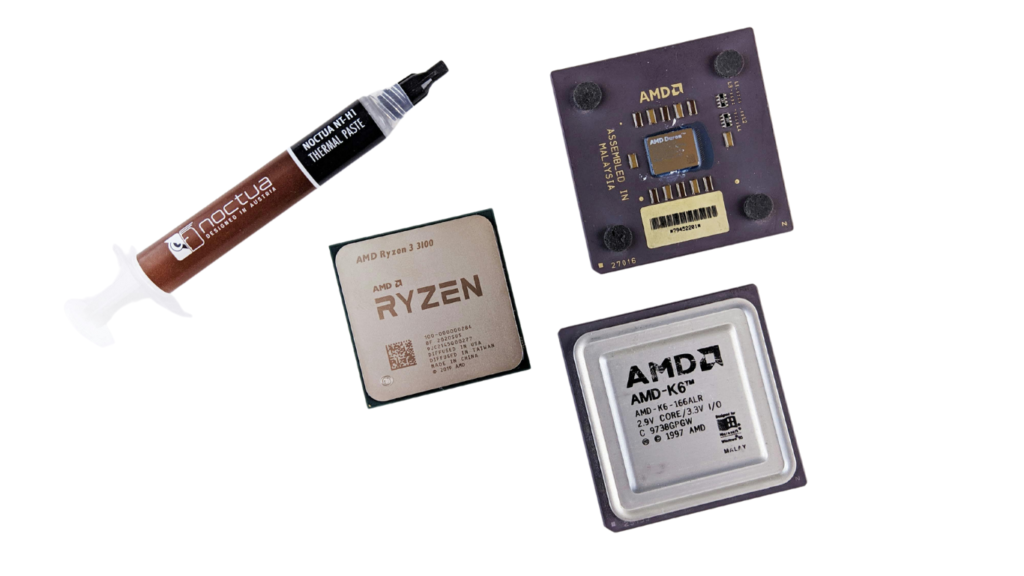
AMD has made significant strides in energy efficiency with Ryzen processors. The advanced manufacturing processes and architectural optimizations reduce power consumption, making Ryzen CPUs more eco-friendly. AMD’s designs focus on lowering the carbon footprint and improving the overall energy efficiency of computing systems.
The company’s commitment to sustainability includes ambitious goals, such as improving energy efficiency by 25 times by 2025. These efforts reduce operational costs for users and contribute to broader environmental sustainability initiatives, positioning AMD as a responsible and forward-thinking technology leader.
What Is the Future of AMD Ryzen Processors?
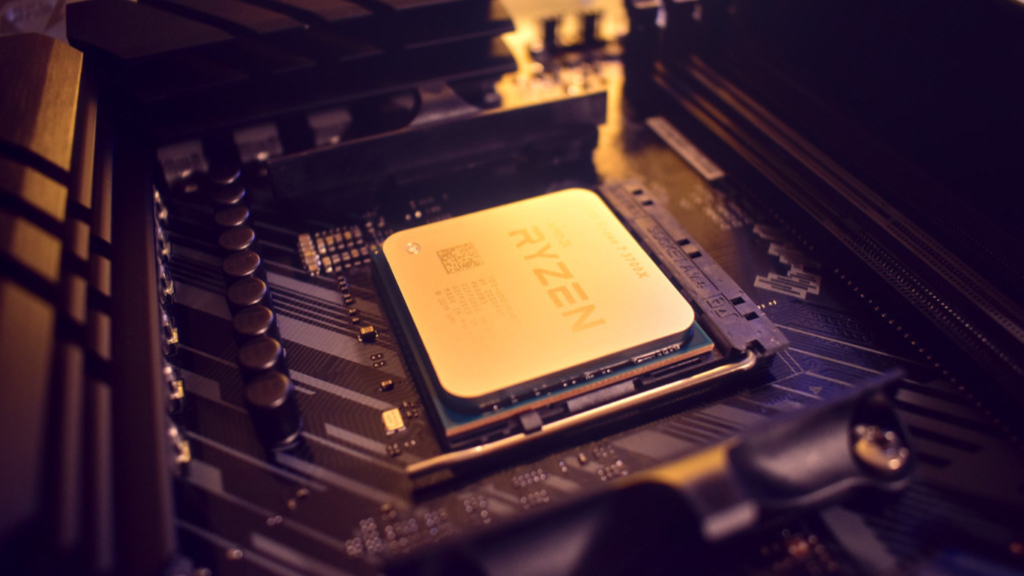
The future of AMD Ryzen processors looks promising, with continued innovation and advancements on the horizon. Upcoming generations, such as Zen 5 and beyond, are expected to significantly improve performance and efficiency. AMD is likely to integrate new technologies, including advanced chipset design, AI capabilities, and sophisticated interconnects, to further enhance the capabilities of Ryzen CPUs. The expanding ecosystem will see Ryzen processors continue to penetrate new markets and applications, including data centres, AI, and machine learning. As AMD continues to push the boundaries of what is possible, Ryzen processors will remain a central component of the evolving computing landscape.
In conclusion, AMD Ryzen processors have dramatically reshaped the CPU market by offering high performance, excellent value, and innovative features. Whether for gaming, content creation, or professional applications, Ryzen CPUs provide robust solutions that cater to a wide range of needs. Their impact on AMD’s market position and the broader computing industry underscores their significance, ensuring that Ryzen remains a formidable competitor in the computing world for years.
